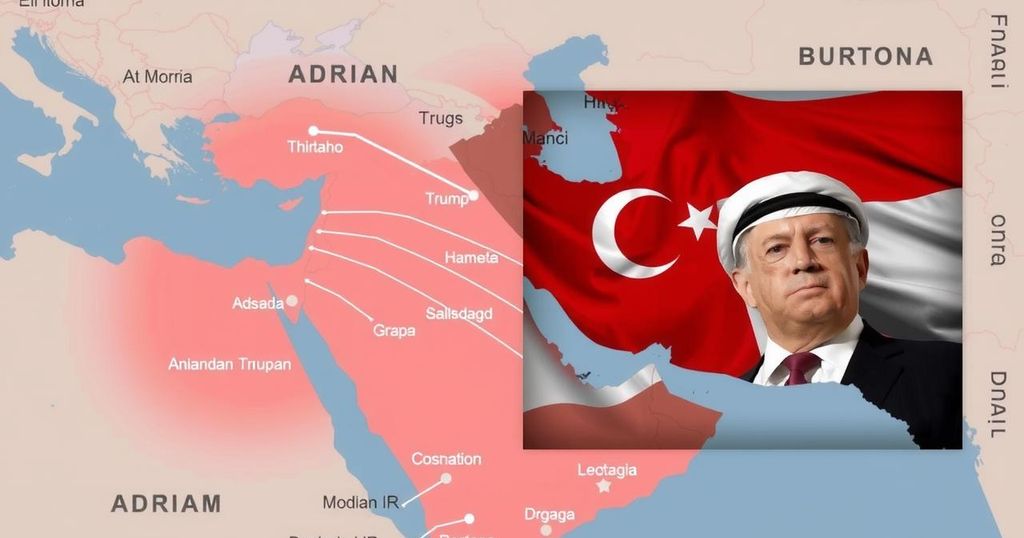The Diverging Paths of Trump and Gulf Allies in a Shifting Mideast

Donald J. Trump may face a challenging landscape with Gulf allies as perspectives shift regarding Israel and Iran following recent conflicts. While the Gulf states move towards a tougher stance on Israel and a softer approach to Iran, Trump’s administration appears committed to traditional alliances. This divergence highlights the complexities of regional diplomacy amid ongoing regional upheavals.
As Donald J. Trump prepares for a potential return to the presidency, the dynamics between him and the wealthy monarchies of the Persian Gulf exhibit significant shifts. Previously, these states aligned closely with Mr. Trump. However, their current positions regarding Israel and Iran are diverging, particularly in light of the ongoing war in Gaza, which has resulted in substantial casualties and regional upheaval. Gulf leaders advocate for a more robust response to Israeli actions and a diplomatic approach towards Iran, contrasting sharply with Mr. Trump’s known policies.f
Despite these differences, significant tensions are not anticipated between Mr. Trump and the Gulf states. However, the context has changed since the outbreak of conflict following the Hamas-led attack on October 7, 2023, which killed numerous individuals. The war’s impact extends throughout the region, affecting groups such as Hezbollah in Lebanon and the dynamics within Syria’s conflicts. With Mr. Trump surrounding himself with advisors who are critical of Iran and supportive of Israel, he must navigate these evolving expectations from Gulf leaders, who urge renewed U.S. engagement with the Middle East. This positions the future relationship between Mr. Trump and Gulf allies in a complex and potentially contentious framework, highlighting the need for diplomatic agility.
The Middle East has historically been a region of complex geopolitical relationships, particularly involving the United States, Israel, and Gulf monarchies. Under Donald J. Trump’s previous administration, these relationships were characterized by a shared approach towards Iran and strong support for Israel. However, developments stemming from the Gaza conflict have altered the landscape, urging Gulf states to reassess their positions on these critical issues as they seek a careful balance between regional stability and their national interests.
In conclusion, as Donald J. Trump potentially returns to power, he will face a Middle East landscape altered by recent conflicts, demanding a reevaluation of U.S. strategies towards key allies in the Gulf. The divergence in perspectives between Mr. Trump and Gulf leaders, especially concerning Israel and Iran, underscores the complexities of diplomatic relations moving forward. Both parties must navigate this intricate web of alliances and expectations to ensure regional stability and collaboration.
Original Source: www.nytimes.com








